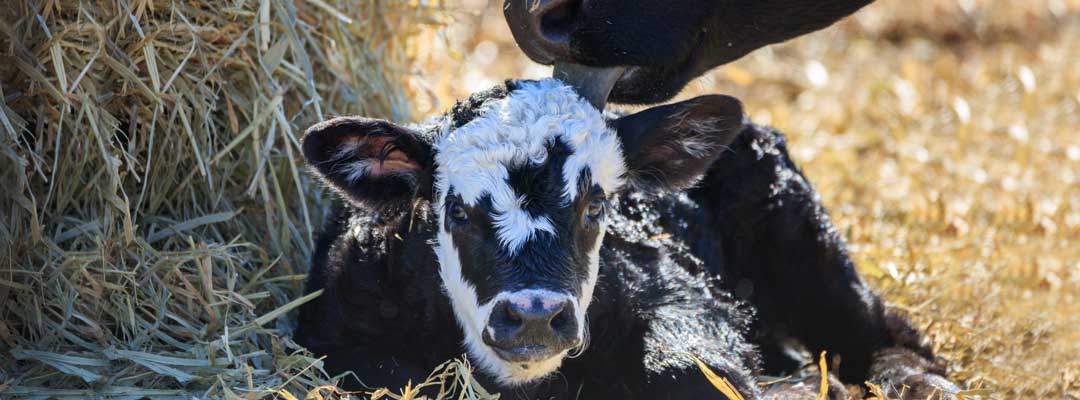Bovine Colostrum: Help Calves Survive and Thrive
Learn how cow colostrum, and a colostrum supplement, can benefit overall calf health and reduce risks for calf diseases.

The first 24 hours are the most crucial for calves’ survivability. Colostrum intake plays a vital role in keeping them alive, helping calves develop an immune response to combat diseases.
What is colostrum?
Colostrum is the first milk produced by the cow, providing 95 percent of the antibodies a calf obtains, plus a rich source of minerals, vitamins and energy.
What is the importance of colostrum for calf health?
Colostrum intake helps protect newborn calves against infectious agents during the first few months of life. Calves are born agammaglobulinemic, meaning they have almost no antibodies to protect them against disease. Because antibodies are very large molecules, the calf’s intestine is only capable of absorbing this protection immediately after birth, with essentially no absorption possible after the first 24 hours.
A calf’s strength and immunity are acquired through colostrum, in either the form of maternal colostrum, a combination of maternal colostrum along with a colostrum supplement, or through a colostrum replacer product.
It is crucial for calves to receive adequate amounts of high-quality colostrum to eliminate risk. By not achieving passive transfer of immunity through colostrum, calves can experience lasting effects. These calves will be at increased risk for:
What are the reasons one would use a colostrum supplement or colostrum replacer?
- A study revealed that nearly 60 percent of maternal colostrum is inadequate in its delivery of IgG proteins (antibodies), putting calves at risk of failure of passive transfer (FPT) -- the passage of the mother’s immunity to its calf. Some 45 percent of samples tested contained pathogens that could put calves’ health at risk.
Are there benefits to providing calves a colostrum replacer, even when maternal colostrum is of good quality?
Yes, one concern with maternal colostrum is the variability of both quality and quantity among cows. Colostrum replacers or supplements deliver a consistent amount of IgG, growth factors and required nutrients, like energy. This offers producers peace of mind that their calves are receiving consistent calf serum IgG levels for their survival and wellness.
Help calves survive and thrive by incorporating colostrum supplements and replacers, which aid in the treatment of FPT and aid in the prevention of death associated with E-coli K99. Look to trusted colostrum replacers, such as:
Continue reading with these articles about calf health:
Rough Winters Can Cause Weak Calf Syndrome


